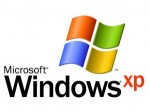 Microsoft has stated that support for the Windows XP operating system will expire on April 8th, 2014. While this may at first seem like a long way off, 18 months can pass by very quickly and now is the time to start planning for the transition to Windows 8 Professional or Enterprise. (If you have already moved to Windows 7 Professional, you’re in good shape for a while.)
Microsoft has stated that support for the Windows XP operating system will expire on April 8th, 2014. While this may at first seem like a long way off, 18 months can pass by very quickly and now is the time to start planning for the transition to Windows 8 Professional or Enterprise. (If you have already moved to Windows 7 Professional, you’re in good shape for a while.)
What will happen after April 8th, 2014? There will be no new security updates, non-security hotfixes, free or paid assisted support options or online technical content updates from Microsoft. Running Windows XP and Office 2003 in your environment after their end of support date may expose your company to potential risks, such as:
Security & Compliance Risks — Un-supported and unpatched environments are vulnerable to security risks. This may result in an officially recognized control failure by an internal or external audit body, leading to suspension of certifications, and/or public notification of the organization’s inability to maintain its systems and customer information.
Lack of Independent Software Vendor (ISV) & Hardware Manufacturers support — An industry report from Gartner Research suggested “many independent software vendors (ISVs) are unlikely to support new versions of applications on Windows XP in 2011; in 2012, it will become common.” And it may stifle access to hardware innovation: Gartner Research further notes that in 2012, most PC hardware manufacturers will stop supporting Windows XP on the majority of their new PC models.
Now is the time to:
> Audit all your business software applications for compatibility with Windows 8, and determine the cost of upgrading where necessary.
> Document your Windows XP computers and determine a replacement plan, to be completed prior to April, 2014.
> Document which computers are running Office 2003, Office XP or Office 97 and determine an upgrade plan, to be completed prior to April, 2014.
> Document any old printers and other equipment such as scanners, dongles, etc.. connected to XP computers and determine if these will be compatible with the new Windows 8 computers.
> Determine a new device strategy to coincide with these upgrades. Will you continue to deploy standard desktops and notebooks or are tablets, convertible tablets or Ultrabooks better choices for the future?
> Budget for all of the above.
